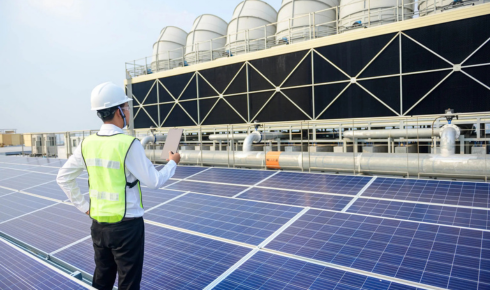The demand for renewable energy solutions is soaring across the world, and among the most practical and cost-effective innovations is the solar water heating system. This eco-friendly technology harnesses the power of the sun to heat water efficiently, offering significant savings and reducing dependency on conventional energy sources. From residential buildings to large-scale industries, solar water heating systems are transforming the way people and businesses manage their energy needs.
Understanding Solar Water Heating Systems
A solar water heating system (SWHS) uses solar energy to heat water for domestic or industrial use. It consists primarily of solar collectors, an insulated storage tank, and a circulation system. The collectors absorb sunlight and convert it into heat, which is then transferred to the water stored in the tank. This heated water can be used for bathing, cleaning, washing, or even large-scale industrial applications.
Unlike electric or gas-powered water heaters, solar systems operate without relying on fossil fuels. Once installed, they provide free hot water throughout the year, making them an environmentally and economically sound investment.
Components of a Solar Water Heating System
- Solar Collectors: These are flat plate collectors or evacuated tube collectors that capture sunlight and convert it into thermal energy.
- Storage Tank: Insulated tanks store the heated water for later use.
- Piping and Circulation System: Transfers water between the collector and storage tank.
- Backup Heater: Provides additional heating during cloudy days or high-demand periods.
Together, these components create a reliable and sustainable solution for water heating across various sectors.
How It Works
The process is simple yet efficient. Solar collectors absorb the sun’s rays and heat up the water that flows through the system. The hot water is then stored in an insulated tank, ensuring minimal heat loss. Depending on the design, the system may operate on natural convection (thermosiphon) or use pumps for water circulation (forced circulation systems).
The system automatically provides hot water whenever needed, reducing electricity consumption and monthly energy bills.
Benefits of Installing Solar Water Heating Systems
- Energy Efficiency: Solar energy is free and abundant. Once installed, you enjoy hot water without worrying about electricity costs.
- Eco-Friendly: It helps reduce greenhouse gas emissions and pollution, contributing to a cleaner planet.
- Low Maintenance: With minimal moving parts, solar water heaters require very little upkeep.
- Cost Savings: Initial installation costs are quickly recovered through savings on energy bills.
- Durability: Modern systems can last 15–20 years with proper maintenance.
- Government Incentives: Many regions offer subsidies and tax benefits to promote renewable energy use.
Applications in the Industrial Sector
The Solar industrial segment has experienced remarkable growth in recent years. Industries require large quantities of hot water and process heat for various applications, making solar heating an ideal alternative. Some common uses include:
- Textile Industry: For washing, bleaching, and dyeing processes.
- Food Processing: For cleaning, sterilizing, and boiling operations.
- Hotels and Hospitals: To provide a consistent supply of hot water for daily operations.
- Chemical and Pharmaceutical Industries: For temperature-controlled processes and cleaning.
Solar water heating systems not only cut operational costs but also support corporate sustainability goals and help meet environmental compliance standards.
Why Industries Should Switch to Solar Energy
- Reduced Operational Costs: Industries can save a significant portion of their energy expenses by using solar water heating systems.
- Long-Term Investment: Though initial costs are higher, the long-term savings and low maintenance make it a profitable choice.
- Energy Independence: Solar energy reduces dependency on fluctuating electricity or fuel prices.
- Sustainability Goals: Adopting solar power strengthens a company’s commitment to environmental responsibility.
Government Initiatives and Support
Governments around the world are promoting renewable energy adoption through attractive subsidies, incentives, and policies. In India, organizations such as the Ministry of New and Renewable Energy (MNRE) provide financial assistance for installing solar water heating systems in homes, institutions, and industries. These initiatives make solar technology accessible and affordable for all sectors.
The Future of Solar Water Heating and Industrial Solutions
With continuous advancements in technology, solar water heating systems are becoming more efficient and affordable. The industrial sector is increasingly turning toward solar-powered solutions for sustainability and cost-effectiveness. Future innovations may integrate solar water heating systems with smart monitoring tools, enabling businesses to track performance and optimize energy use in real time.
Conclusion
Solar energy represents the future of clean, sustainable living. Whether for homes or large-scale industrial operations, adopting renewable technologies like a solar water heating system is a step toward a greener planet and reduced energy costs. By embracing solar industrial solutions, businesses can achieve long-term savings, meet sustainability goals, and contribute to a cleaner, energy-efficient future.

